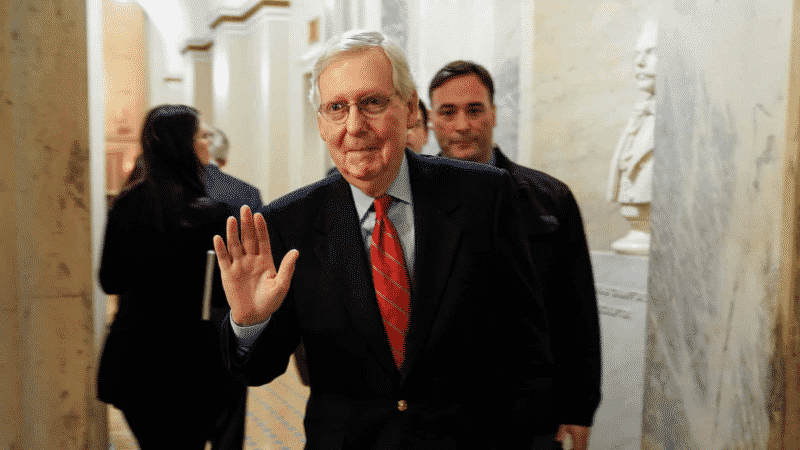U.S. President Donald Trump’s impeachment trial enters a pivotal week on Monday as his lawyers resume their defense following a fresh report that could intensify pressure on Senate Republicans to call former national security adviser John Bolton to testify.
The New York Times cited an unpublished Bolton manuscript as saying that Trump told him he wanted to freeze security aid to Ukraine until its officials helped with investigations into Democrats, including former Vice President Joe Biden, and his son, Hunter Biden.
The elder Biden is a leading Democratic contender to face the Republican president in the Nov. 3 U.S. election. Hunter Biden worked for a Ukrainian energy firm while his father was vice president.
The report, which did not quote the manuscript but cited multiple people describing Bolton’s account, may undercut a key element of Trump’s defense: that there was no quid pro quo when he asked Ukrainian President Volodomyr Zelenskiy to investigate Biden and his son, Hunter Biden, in a July phone call.
The White House did not respond to a request for comment.
Trump’s team has previously said he was well within his constitutional authority to press Zelenskiy to investigate the Bidens as part of what he says was an anti-corruption drive. The Bidens deny wrongdoing.
In only the third presidential impeachment trial in U.S. history, Democrats argued last week that Trump should be removed for encouraging Ukraine to interfere in the 2020 U.S. election by pressuring its leader to dig up dirt on Biden.
Trump’s defense tried to turn that election interference line against the Democrats in its opening argument on Saturday by warning against removing a president less than 10 months before Americans vote on whether to give him a second term.
While the Republican-controlled Senate is highly unlikely to remove Trump from office, it is important for him to try to blunt the Democratic accusations to limit political damage to his bid for a second term.
The report drew immediate Democratic demands that the Senate call Bolton as a witness, an issue the 100-member chamber is likely to address later in the week.
The impeachment trial rules provide for a two-step process on whether to subpoena witness and documents, with an initial vote on whether to consider doing so and, if approved, subsequent votes to actually call witnesses or demand documents.
Democrats argue this could allow Republicans have it both ways – allowing them to first vote “yes” on whether to proceed and then vote “no” on actually allowing witnesses or documents.
As a result, vulnerable Senate Republicans could make the case to moderates that they had voted in favor of witnesses in the first vote while avoiding alienating Trump supporters by refusing to actually call any in later votes.
If the Senate called witnesses or demanded documents, the trial could lengthen. If not, the Senate could vote toward the end of the week on whether to remove Trump from office.
If that were to happen the trial could be over before the first U.S. voting contest takes place in Iowa on Feb. 3 and before Trump is scheduled to deliver the annual State of the Union address to a joint session of Congress on Feb. 4.
(Additional Reporting by Pete Schroeder, Arshad Mohammed and Tim Ahmann; Writing Arshad Mohammed; Editing by Shri Navaratnam)

























 Continue with Google
Continue with Google